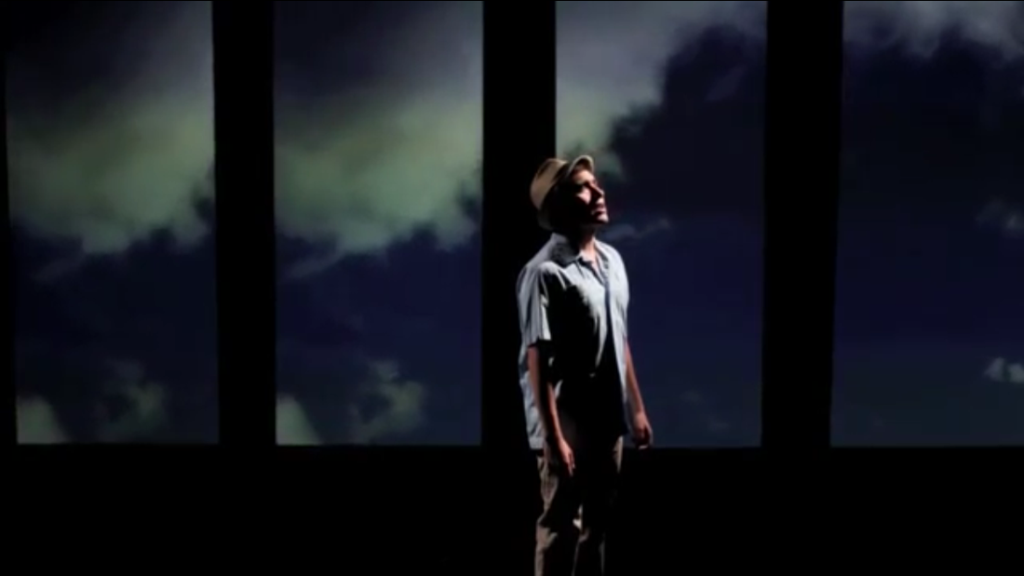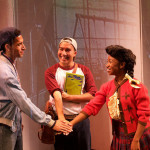In the 1960’s the world was in turmoil. Things were changing fast and fully. It was a brave new world fighting the old traditions that had created the chaos. In Cuba, a new government was taking over. Caught in the middle of a senseless cold war that stripped them of many rights and with a leader with questionable motivations who divided the country and it’s people, Cuban parents were worried about how their kids would grow up indoctrinated in such an unstable place. Then Operation Pedro Pan happened. The largest migration of minors recorded in the new world, this exodus brought unattended children to their families in the States. Others went into shelters, or into religious care. At the end, a massive amount of children were relocated across the country with no certainty about how their future would pan out or how long will they would have a place to live.
A part of history that has been almost forgotten now comes into light thanks to the written words of Rebecca Aparicio. A descendant from Cuban parents, Rebecca shares a deep connection to a land she has never been able to visit thanks to the restrictions that plagued the nation for decades. Outspoken and fierce, this playwright is set to tell the story about one of those lost kids that were sent to the states by themselves in the children’s musical “Pedro Pan.” And she’s not alone in telling it. Accompanying her in creating the piece is her husband Stephen Antony Elkins. A gifted musician, Elkins provides music to Aparicio’s words and help put the spotlight on an event that scarred many and is still relevant today.
Produced once before to great reactions last year at the Chain Theater in Long Island City, “Pedro Pan” is now coming to Manhattan thanks to the Fringe NYC Festival. One of the most known and prestigious fringe festivals in the world, Rebecca and Stephen now have a chance to reach a larger audience with their endearing and powerful story. I talked to the Aparicios about the project and their work together. If you need more reasons to be convinced, read the interview below. Then go to www.Pedropanthemusical.com and check the schedule. The show will be opening on August 16th and will be followed by four more performances throughout this month. Don’t miss it!
NDM: Talk to me about Operation Pedro Pan. Modern Cuban history has many events to write about, why is this story the one you chose to base your work on? Is there a special attachment for you?
Rebecca: I was commissioned by the Truf to write a children’s musical and the parameters I was given were: it needed to be cultural and tied in to a fairytale or fable. As a Cuban-American, I wanted to bring some of my cultural background to this project, so I began researching Cuban fairytales and fables. I discovered that I did not feel any connection to any of the fables I was reading; I didn’t want to make a children’s musical with a very narrow subject. As I was researching, I came across the movement of Operación Pedro Pan, which occurred between 1960 and 1962. Cuban parents fearing the indoctrination of their children to the Communist ideals and fear of losing their parental rights, made the heart-wrenching decision to send their children overseas to the US for hope of a better life. Now, this resonated with me.
Both my parents were torn from their country at a very young age, with no hope of ever returning to their birthplace. While they were not Pedro Pans, they both were able to leave with a parent, they shared the same trauma of having to leave their country and how to adjust to a new life in America without knowing the language, customs, or country. When my dad left Cuba with my grandmother and my middle uncle, they left behind my Grandfather in prison (he was imprisoned for 7 years for having ideas against the government)—never knowing if they would ever see him again. My Grandmother had to make that decision to leave behind her parents and her husband to save all of her children. My eldest uncle had already been sent to America without the rest of the family, as he was the eldest and risked being put into the Cuban Military. Once a male turns 15, he must join the Cuban military and remain in the military until age 26, meaning your chances of getting out of the country get exponentially smaller with each year that passes.
The bravery that my Grandmother showed in having to send her eldest son alone to the US in order to give him a better life—a free life— is something that has stayed with me since I was a little girl— and then to have to leave Cuba with her other two sons, to start all over in the U.S.— just heart-wrenching. While my dad has very little memories of that time due to the pain endured, my mother has very vivid stories of leaving Cuba with one suitcase—only to have the guards take away all her possessions and then to board a plane for the first time in her life, never knowing if she would see the rest of her family or country again. These stories have always made me very aware of the sacrifices all of my grandparents made and the suffering my family had to endure, in order to ensure that I as the third generation would be born in this country. This is something that is interwoven into the fabric of who I am. Reading the stories of the Pedro Pan survivors, tears would stream down my face as I thought about the pain that my parents had to endure as young children, as did so many Cuban children of Pedro Pan and outside the Pedro Pan years. Now in 2015, you have young children crossing the borders with their parents, enduring danger at every turn for hopes of a better life, and then getting to America only to face discrimination on top of all the challenges of being a young immigrant torn from your country. This is a story that needs to be told.
NDM: Being such a serious subject; why did you choose to make it as a children’s musical?
Rebecca: Most children’s shows are light and fun, however children do not always just deal with light issues. There are many children today facing discrimination for the color of their skin, for their cultural background, for their sexual orientation, for the way they look, it goes on and on. This story of survival isn’t a specifically Cuban one, it is a human story. Wendy, in our show, is a young girl from Alabama that has come to NYC to escape the dangers of the Civil Rights Movement in the South. One doesn’t have to look very far in 2015, to relate to Wendy’s quest to fit in as a young black woman.
NDM: How long have you guys work together? Which is your favorite experience as a team?
Rebecca: We’ve worked together on musicals since 2005. We were very fortunate to attend a college where our homecoming tradition was that the school divides into two teams, purple and gold, and each team is responsible for building an original musical from the ground up. Favorite experience: Nothing compares to watching your words come to life during the production process. That first performance. It’s what all your hard work, blood sweat and tears is for.
NDM: The struggle for ethnic actors is still very prevalent in today’s world. How was the casting process for Pedro Pan?
Rebecca: Being a hispanic actor myself, this is something that was incredibly important for me to stay true to in our casting process, to REALLY take the time to search for the talent. Our casting director on the first incarnation of Pedro Pan, Chelsea Ignagni, was critical to this, as well. She really pushed me to remain true to the characters I wrote and take the time to do extra auditions until we got what we were looking for. Jason Styres, who filled a couple of replacements in this production, was also very passionate about bringing in multi-cultural actors in to the audition room—I say multi-cultural because they did not necessarily have to be “hispanic”—as everyone knows Cubans come in all shapes and sizes, all hispanic people don’t have dark hair, dark eyes, and brown skin. I am proud to say that every single person in our show has a multi-cultural background and that we were able to remain true to giving opportunities to an all diverse or whatever PC word I should say—cast.
However, there is a fine line with casting that goes both ways. You want to give these roles to someone with a hispanic background— but you don’t want to discriminate in the other direction either—because that’s wrong. If someone comes in for the role and they are perfect in every way but they are white, you don’t want to say that person shouldn’t get the role because they are white. However, we are fortunate enough to be in New York City, where every single girl that walks in to your audition room is going to be EXTREMELY talented, is going to sing well AND act well, so if you can look hard enough—which we did—you can find the actor who has a little bit of all of the things you are searching for.
NDM: Based on your previous work, do you specifically write about those communities that are under represented and need their stories told? Or is it a coincidence?
Rebecca: Our last musical was “Sweet Tea and Jesus” about Southern gays who were trying to pray the gay away. So yes, social theatre is important to me.
Theater like this is important to keep around and support as much as possible. Sometimes entertainment is the only source of education people listen to. Creativity is such a powerful weapon that needs to be sharpened. Please check this show when it opens, be transported to another time, and SUPPORT NEW WORK!
Twisted Talk: Are you familiar with Operation Pedro Pan? Are you a fan of social theater? Discuss below!











Pingback: “Pedro Pan” Is As Entertaining As It Is Important